File Info
| Exam | General Securities Representative Qualification Examination (GS) |
| Number | Series 7 |
| File Name | FINRA.Series 7.PracticeTest.2018-08-18.214q.vcex |
| Size | 159 KB |
| Posted | Aug 18, 2018 |
| Download | FINRA.Series 7.PracticeTest.2018-08-18.214q.vcex |
How to open VCEX & EXAM Files?
Files with VCEX & EXAM extensions can be opened by ProfExam Simulator.
Coupon: MASTEREXAM
With discount: 20%
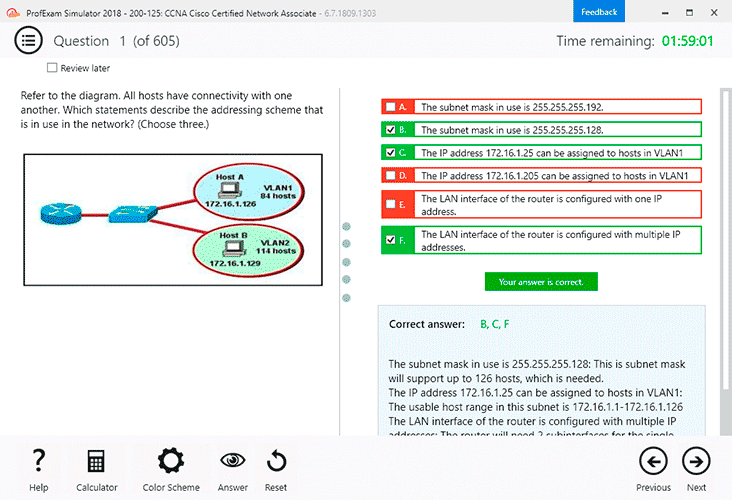
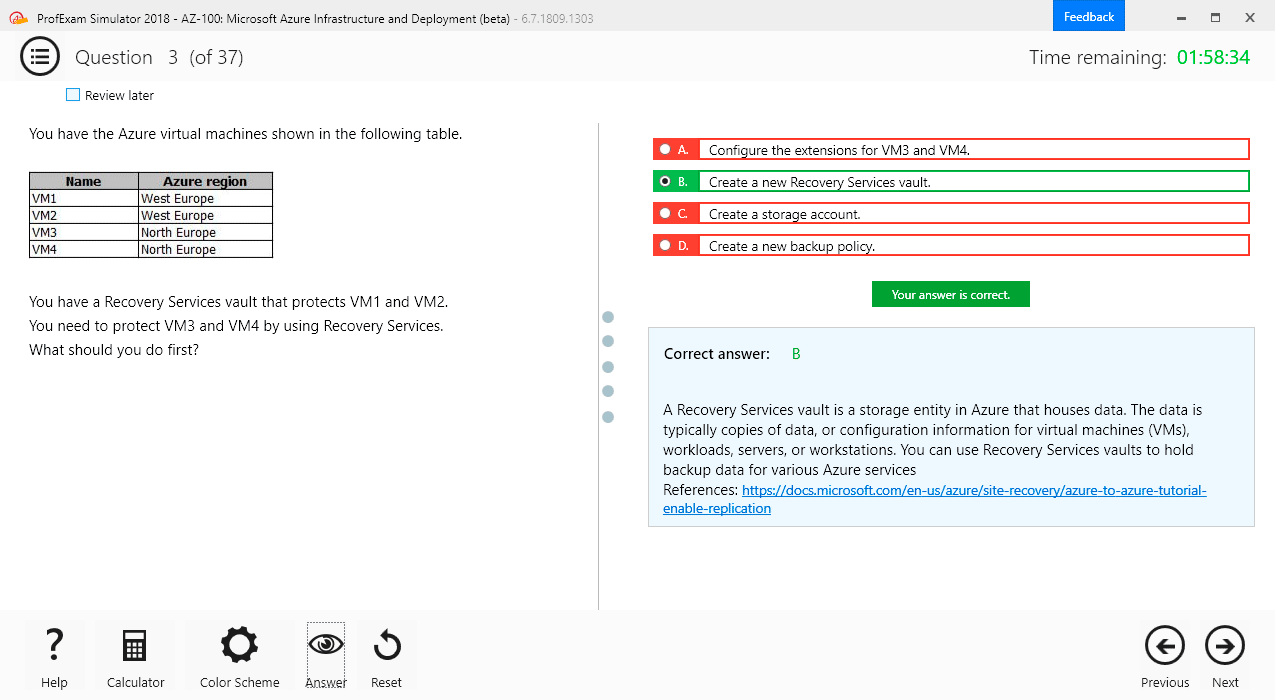
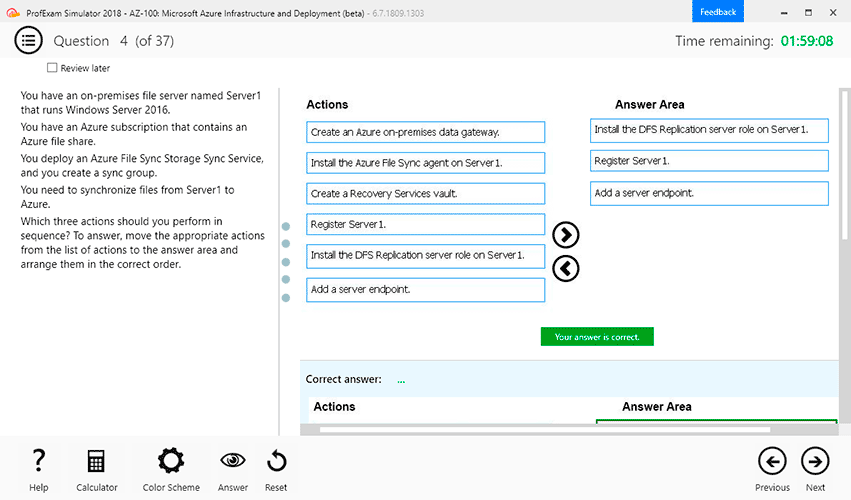
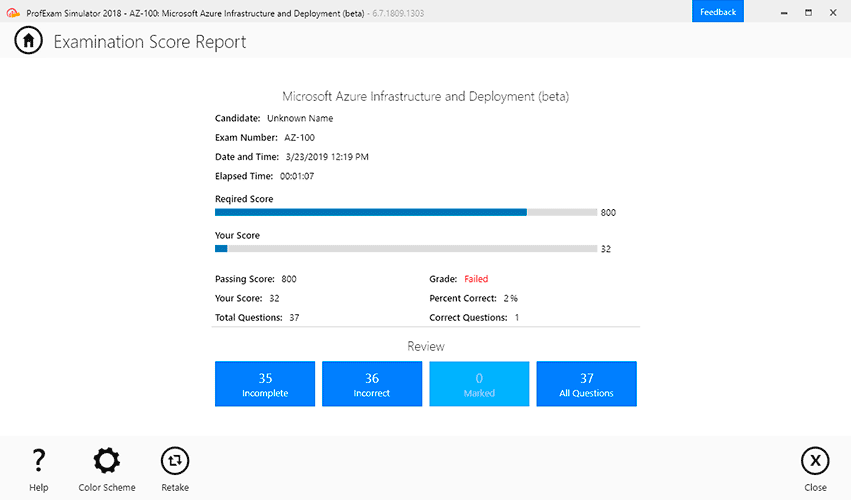
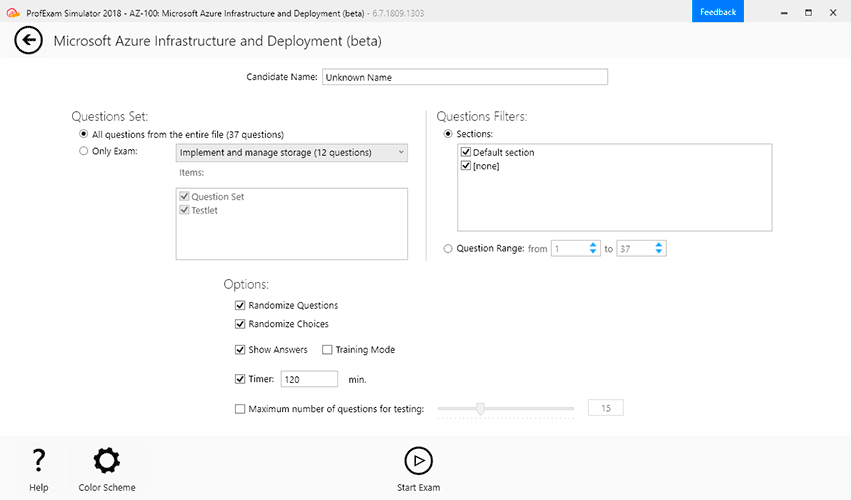
Demo Questions
Question 1
Bubba is buying a treasury bill. The discount he receives results in Bubba’s determination of:
- face value
- nominal yield
- rate of return
- yield to call
Correct answer: C
Explanation:
rate of return. Because T-bills pay no interest, Bubba’s rate of return is the discount as a percentage of the face value he receives at maturity. rate of return. Because T-bills pay no interest, Bubba’s rate of return is the discount as a percentage of the face value he receives at maturity.
Question 2
A treasury obligation having no fixed rate of interest with a thirty-day maturity due April 22 is most likely a:
- treasury note
- tax anticipation bill
- Series H bond
- Series EE bond
Correct answer: B
Explanation:
tax anticipation bill. These obligations pay no interest and their maturity comes after corporate tax payment dates. They are accepted for redemption at face value prior to maturity on corporate tax payment dates to encourage purchase by corporations. tax anticipation bill. These obligations pay no interest and their maturity comes after corporate tax payment dates. They are accepted for redemption at face value prior to maturity on corporate tax payment dates to encourage purchase by corporations.
Question 3
Which of the following has the greatest risk?
- a guaranteed corporate bond
- a GNMA bond
- a Series H bond
- a treasury bill
Correct answer: A
Explanation:
a guaranteed corporate bond. All of the other securities are obligations of the US government, which is considered to have minimal or no risk. a guaranteed corporate bond. All of the other securities are obligations of the US government, which is considered to have minimal or no risk.
Question 4
Bubba wants to buy a US treasury bond with a bid of 97.28 and an asking of 98.2.
How were these prices established?
- by the FINRA
- by the Federal Reserve Board
- by competitive biding
- by the terms of the bond
Correct answer: C
Explanation:
by competitive biding. The quoted prices for treasury bonds-as with all negotiable securities-is determined in the market by competitive biding. by competitive biding. The quoted prices for treasury bonds-as with all negotiable securities-is determined in the market by competitive biding.
Question 5
Which of the following are direct obligations of the US government?
- Import-Export bank bonds
- Series EE bonds
- Farm Credit System bonds
- both B and C
Correct answer: B
Explanation:
Series EE bonds. Import-Export bank bonds and Farm Credit System bonds are not direct obligations of the United States. Series EE bonds. Import-Export bank bonds and Farm Credit System bonds are not direct obligations of the United States.
Question 6
A financial institution requesting a quote on a block of 100 bonds from a dealer in government securities receives a quote of 98.02 bid, 98.06 asked.
What is the dollar amount the institution will receive if the financial institution sells these bonds to the dealer?’’
- $98,062.50
- $98,187.50
- $98,250.00
- $98,750.00
Correct answer: A
Explanation:
$98,062.50. The financial institution receives the bid price, which is 98 and 2 / 32. Two thirty-seconds is $0.625. The 98 is the percentage of a $1,000 bond. Multiplying 98% by $1,000 results in $980. Add $0.625 to $980 to arrive at $980.625 per bond. But …there are 100 bonds. So, multiplying $980.625 by 100 equals $98,062.50. $98,062.50. The financial institution receives the bid price, which is 98 and 2 / 32. Two thirty-seconds is $0.625. The 98 is the percentage of a $1,000 bond. Multiplying 98% by $1,000 results in $980. Add $0.625 to $980 to arrive at $980.625 per bond. But …there are 100 bonds. So, multiplying $980.625 by 100 equals $98,062.50.
Question 7
Bubba plans to borrow some money and pledge securities as collateral.
Which of the following can he not use as collateral?
- Series EE bonds
- US treasury bills
- US treasury notes
- US treasury bonds
Correct answer: A
Explanation:
Series EE bonds. Because Series EE bonds are not negotiable, they have no collateral value. They cannot be sold back to the US government. Series EE bonds. Because Series EE bonds are not negotiable, they have no collateral value. They cannot be sold back to the US government.
Question 8
Big Easy Investment Banking, Inc., is participating in an Eastern account underwriting of $10 million of municipal bonds by agreeing to underwrite 10% of the issue. One week later, $4 million remains unsold but Big Easy has distributed $1.5 million of bonds.
What is the liability of Big Easy remaining in the account?
- $0
- $400,000
- $600,000
- $1,000,000
Correct answer: B
Explanation:
$400,000. In an Eastern account, liability remains open until the entire syndication is closed. Therefore, Big Easy has a liability for 10% of the unsold portion. Since the unsold portion is $6 million, the liability for Big Easy is 10% of that amount, which is $400,000. $400,000. In an Eastern account, liability remains open until the entire syndication is closed. Therefore, Big Easy has a liability for 10% of the unsold portion. Since the unsold portion is $6 million, the liability for Big Easy is 10% of that amount, which is $400,000.
Question 9
Big Easy Investment Banking, Inc., participates in a Western account underwriting of $10 million of municipal bonds by agreeing to underwrite 10% of the issue. One week later, $4 million remains unsold but Big Easy has distributed $1.5 million of bonds.
What is the liability of Big Easy remaining in the account?
- $0
- $400,000
- $600,000
- $1,000,000
Correct answer: D
Explanation:
$1,000,000. In a Western account, each underwriter has divided liability and each is responsibility only for his respective part. In this case, Big Easy is responsible for 10% of $10,000,000 - or $1,000,000. $1,000,000. In a Western account, each underwriter has divided liability and each is responsibility only for his respective part. In this case, Big Easy is responsible for 10% of $10,000,000 - or $1,000,000.
Question 10
Bubba buys “double-barreled” municipal bonds. What is the source of guaranteed repayment on these bonds?
- a specific municipal project plus a federal subsidy
- two specific municipal projects
- all projects of the issuing municipality
- one specific municipal project plus the full financial strength of the issuer
Correct answer: D
Explanation:
one specific municipal project plus the full financial strength of the issuer. Double -barreled bonds are first payable from a specific project, but are further guaranteed by the issuing municipality. one specific municipal project plus the full financial strength of the issuer. Double -barreled bonds are first payable from a specific project, but are further guaranteed by the issuing municipality.


